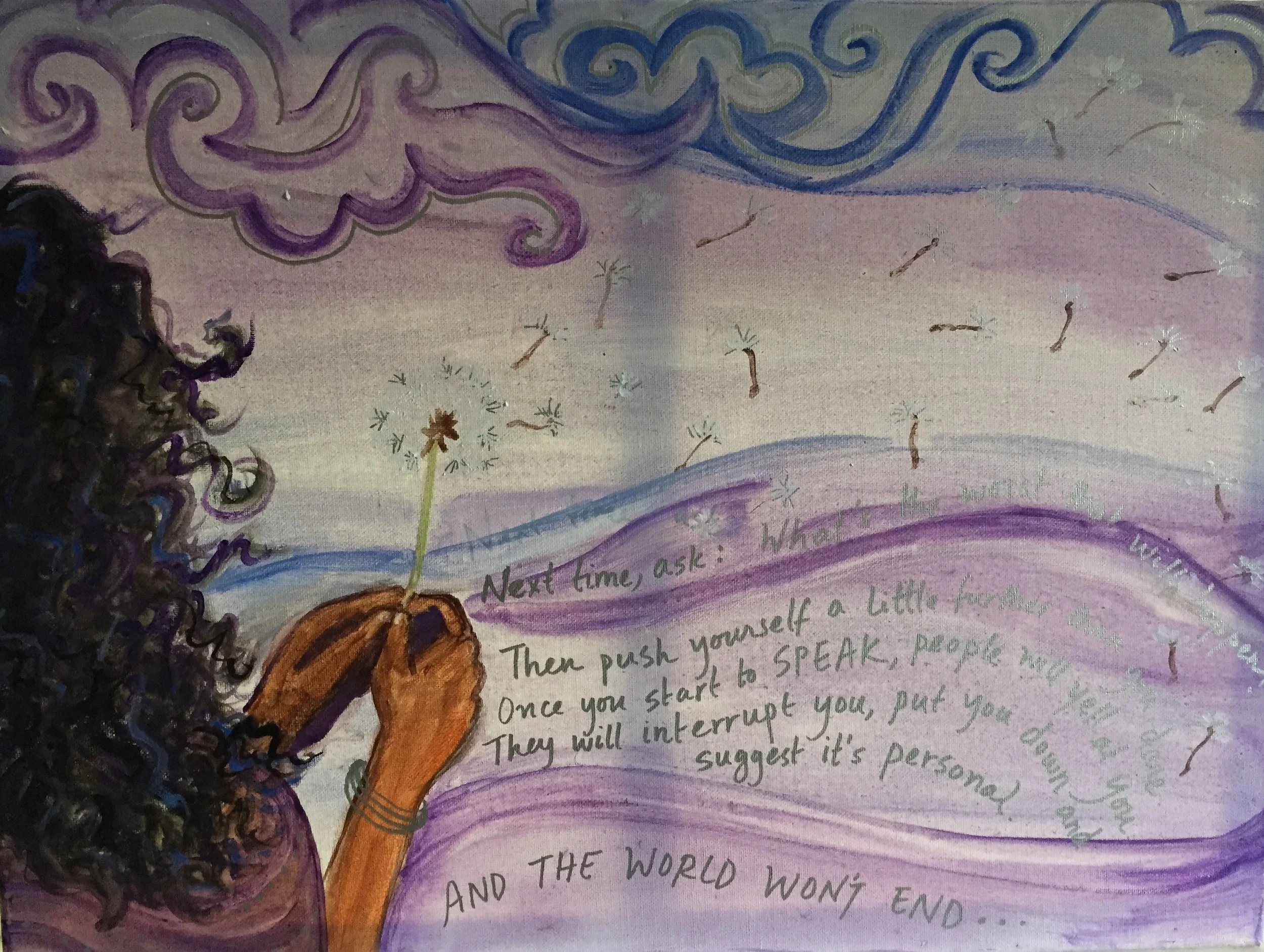Dr. Subini Ancy Annamma
Art created by Lakshmi Nair
Quote by Audre Lorde "Next time, ask: What’s the worst that will happen? Then push yourself a little further than you dare. Once you start to speak, people will yell at you. They will interrupt you, put you down and suggest it’s personal. And the world won’t end. And the speaking will get easier and easier. And you will find you have fallen in love with your own vision, which you may never have realized you had. And you will lose some friends and lovers, and realize you don’t miss them. And new ones will find you and cherish you. And you will still flirt and paint your nails, dress up and party, because, as I think Emma Goldman said, “If I can’t dance, I don’t want to be part of your revolution.” And at last you’ll know with surpassing certainty that only one thing is more frightening than speaking your truth. And that is not speaking.”
Prior to her doctoral studies, Subini Ancy Annamma was a special education teacher in both public schools and youth prisons. Currently, Dr. Annamma is an Assistant Professor in the Department of Special Education at the University of Kansas, USA.
Dr. Annamma’s book, The Pedagogy of Pathologization (Routledge, 2018) focuses on the education trajectories of incarcerated disabled girls of color and recently won the National Women’s Studies Association (NWSA) Alison Piepmeier Book Prize. Subini is also a a Ford Postdoctoral Fellow for the 2018-19 school year hosted at UCLA. She was recently awarded the Critical Race Studies in Education Association (CRSEA) Emerging Scholar Award and is a recipient of the 2017 American Education Research Association (AERA) Division G Early Career Award, the 2018 University of Kansas School of Education Faculty Achievement Award for Promising Scholar, and the 2017 Western Social Science Association (WSSA) Outstanding Emerging Scholar Award. She is currently a Co-Chair of the Critical Educators for Social Justice (CESJ) SIG of the American Educational Research Association (AERA), an Editorial Board member of Race Ethnicity and Education, Focus on Exceptional Children, a Consulting Editor for Multiple Voices for Ethnically Diverse Exceptional Learners. Subini is also a Member of the Office of Juvenile Justice and Delinquency Prevention (OJJDP)’s National Girls Initiative. Dr. Annamma is also a past winner of the AERA Dissertation Minority Fellowship in Education Research Award, former Co-Program Chair for the 2016 annual conference of the Critical Race Studies Association in Education, and is the co-editor of two books.
Dr. Annamma's research and pedagogy focus on increasing access to equitable education for historically marginalized students and communities, particularly students of color with disabilities. Specifically, she critically examines the social construction of race and ability; how the two are interdependent, how they intersect with other identity markers, and how their mutually constitutive nature impacts education experiences. She centers this research in urban education and juvenile incarceration settings and focuses on how student voice can contribute to dismantling systemic inequities and identifying exemplary educational practices.
CV available upon request.
